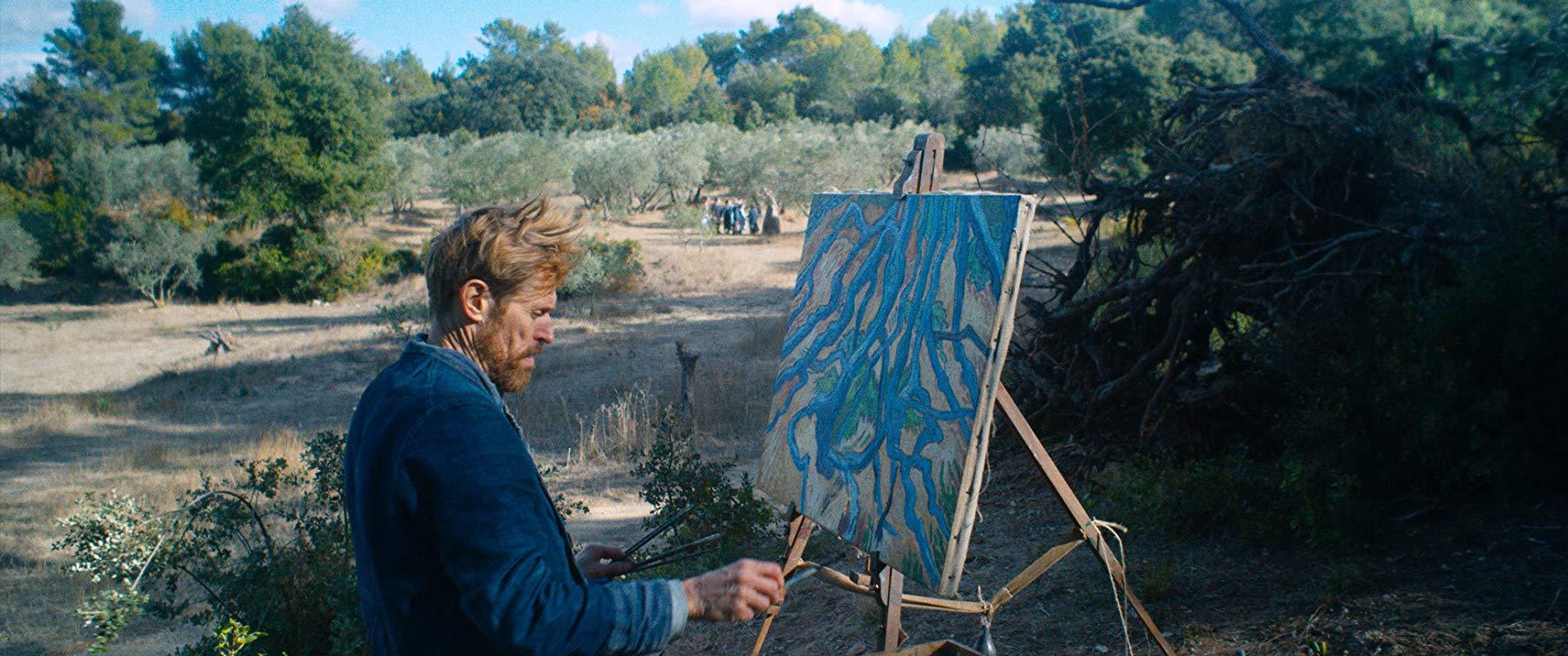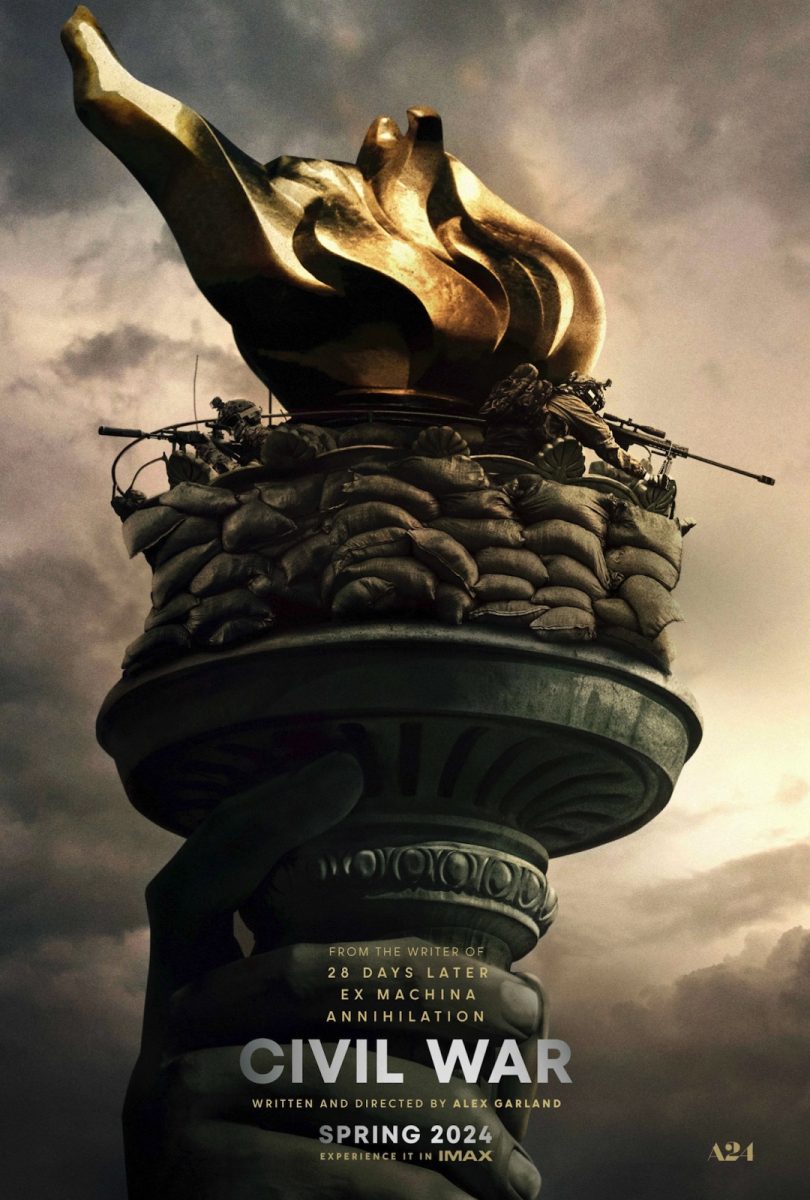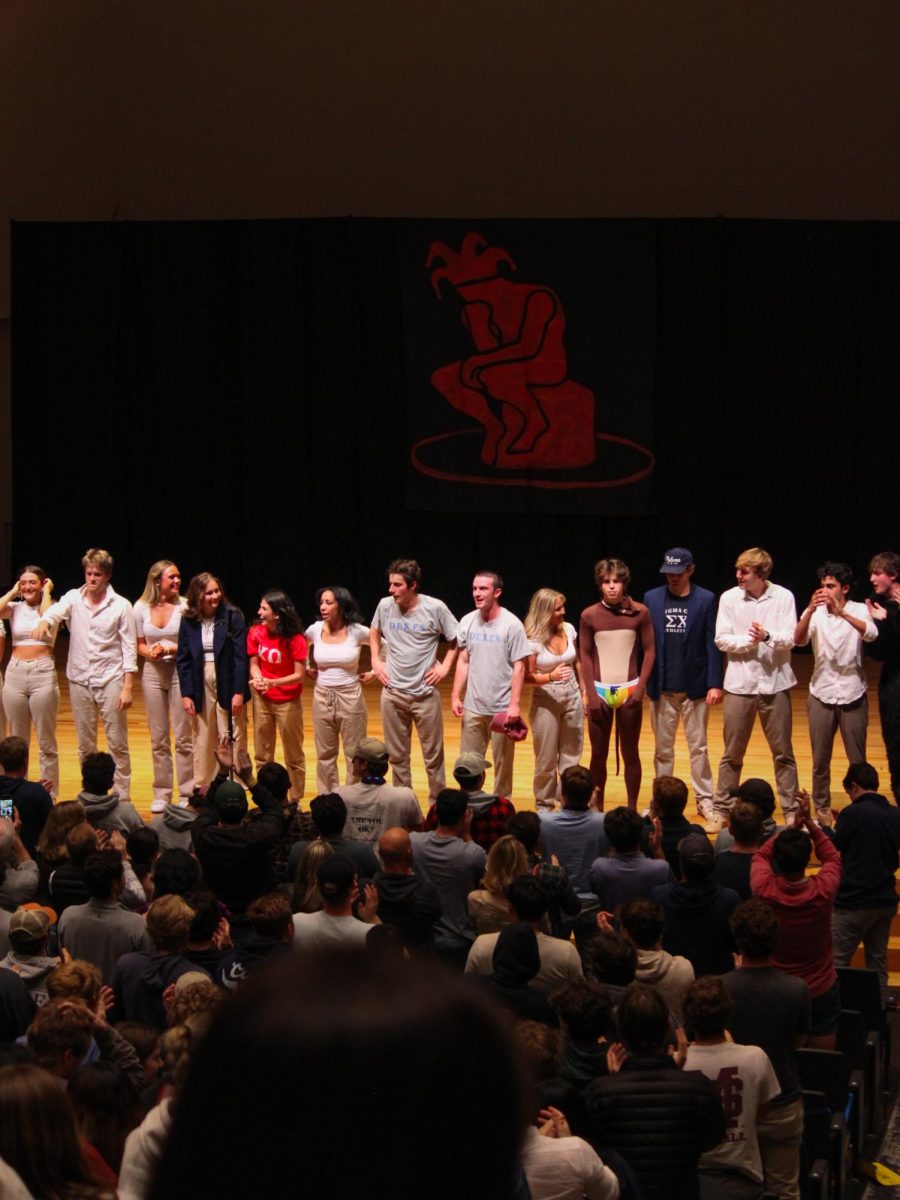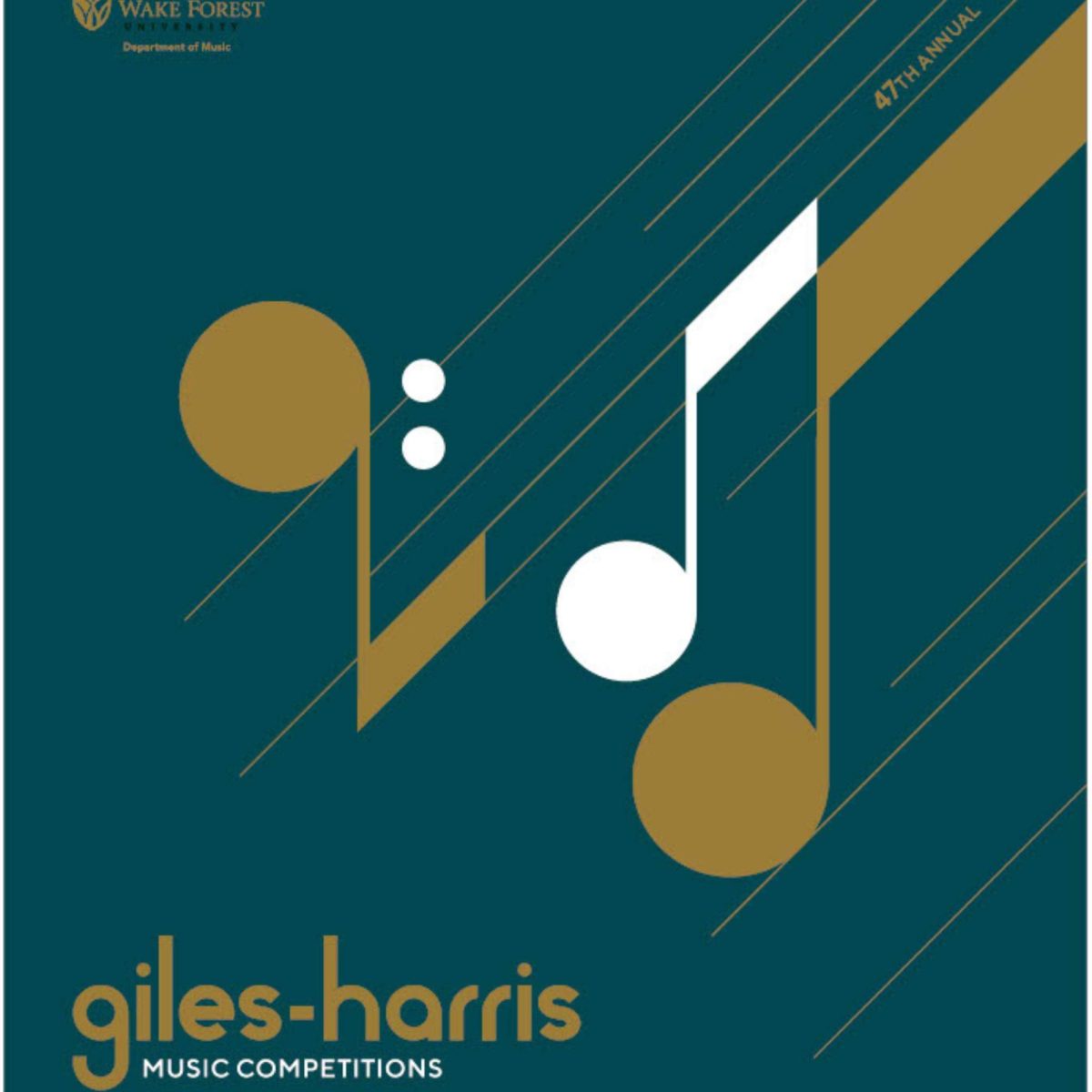At Eternity’s Gate is a poor excuse for a biopic, and I must say: who cares? The right answer should be no one. The film’s loosely biographical context, that of the life and work of Vincent Van Gogh, serves as a mere staging for Julian Schnabel’s intense, visual experience. The more time we spend with Schnabel’s camera, the more we find out it is consistent with Van Gogh’s fierce aesthetic universe. We begin to see the world as Van Gogh might have seen it. His gilded landscapes titter and gleam, and Schnabel’s lens transposes his preconceived madness into a vision of divine transcendence.
The films opens in black, with Vincent Van Gogh (Willem Defoe) telling us in voiceover that he just wants to be “one of them,” presumably an artist in an enclave where expression is eased by community and discourse produces great art. But we see this innocent wish become an unreal fantasy quickly, as we jump to Paris, where avant-garde artists are cramped and quibbling about communes and tendencies. It’s all very claustrophobic and beside the artistic point. Paul Gaugin (Oscar Isaac) lambasts before exiting, and soon after, as he and Vincent walk the bleak streets of Paris, Gaugin airs his famous desire to “go native.” Vincent, confounded by the fog of the city, is also in search of something new, a “new kind of light.” Gaugin tells Vincent to go south to find it, but upon arriving in Arles in the south of France, freezing wind clacking the shutters and banishing all signs of warmth, Gaugin’s advice looks stale and unpromising. Schnabel’s camera makes this start to the film dizzying, deploying an abundance of emetic, first-person shakes. At first, one may decry the overly-antsy shots, but then, as Vincent takes off his shoes in the middle of his shack, in a moment of import unlike anything I’ve seen, he begins to reconstruct our vision. His paint dissolves the weight of gloom into an evanescent ecstasy. The air clears to make room for a stroke-by-stroke conflagration as Vincent detonates the mundanity into a roiling, sensuous painting, immediately convincing us that his vision is worth our attention.
Whatever meager expenses Vincent has in Arles are paid for by his brother Theo (Rupert Friend, recognizable mostly through his eyes), whose love for Vincent and faith in his talent never wavers. It is a sort of fraternal sensitivity. As Vincent’s time in Arles attenuates, we see just how sensitive he is, and how nature, pure and untrammeled, is the only thing that can assuage his soul. What Schnabel does with the visuals is remarkable, taking landscapes that are beautiful by themselves and transforming them into the sui generis vision of his subject. He imbues nature with a glint of the divine and transforms it into a sweeping panorama of energy and sunlight. Vincent says that when he sees a landscape he sees eternity, and that his duty as a painter is to convey eternity to those who can’t see it. Schnabel seems to take on the same onus, peeling back the layers and showing us the explosive infinitude behind even the most obvious picaresque. As the camera swirls around a wide-eyed Vincent, we are swept into his awe. Yet, never does the film claim Vincent’s work to be sublime, since there is never fear involved, only a certain pictorial generosity, a super-sensitivity to the glowing nerves of nature.
Gaugin, a revolutionary himself, comes to visit Vincent in Arles on the behest of Theo and comes across as myopic. He spends his time trying to categorize Vincent, telling him to slow down, to focus on the medium itself, to think. All of his exhortations seem limiting, doctrinal, even pedantic when shown Vincent’s visual paroxysms. Gaugin ironically comes off as one of those dithering, Parisian ideologues from earlier scenes, trying to fit Vincent into some cogent theory of art, which shows that, as Vincent says, perhaps he is not a painter of his time, but a painter for future generations. This echoes Nietzsche’s famous quip that some men are borne posthumously, and this is most certainly true of Van Gogh, despite the rousing scene where G. Albert Aurier’s review of Van Gogh in Mercure de France (a masterpiece itself) reverberates through the Paris art world.
Vincent Van Gogh’s artistic revolution was, during his life, a quiet one, done in the south of France and Auvers-sur-Oise, with a grand vision cloistered mostly in the mind of the artist. Defoe’s portrayal comes across as if he, too, is pondering Van Gogh’s vision, as if he is contemplating, just as much as his director, the complex, otherworldly perceptions of his character. Van Gogh’s sporadic, internal confluences, uttered in flash-paintings of Pollock-esque inspiration, seem to strike Defoe just as well.
“Don’t loaf around and invite inspiration; light out after it with a club,” Jack London said. In At Eternity’s Gate, Vincent does both, painting his 75 paintings in 80 days with assiduous energy and vigorous commitment, all the while slowly pondering the mysterious divinity of his subject. He paints in a fury to try to scratch at the infinite, and his paintings emanate a kind of symbiosis between human and nature, a synergy of vision and its own realization of eternity. This all sounds very ethereal, and that’s because it is. It is difficult to describe one man’s feelings and vision of the infinite. That is why we have his paintings, and that is why heaps of books have been written about them, to try bear out in language the ineffable feelings Van Gogh incessantly itched with. Julian Schnabel’s film adds to the canon of artistic attempts, capturing the blazing color, mutating forms and uncoiling atoms apparent in Van Gogh’s paintings. “Lived experience does not mean sensible qualities,” Felix Gauttari says in Chaosophy, “it means intensification.” He, along with Schnabel and Defoe, must have been a fan.







